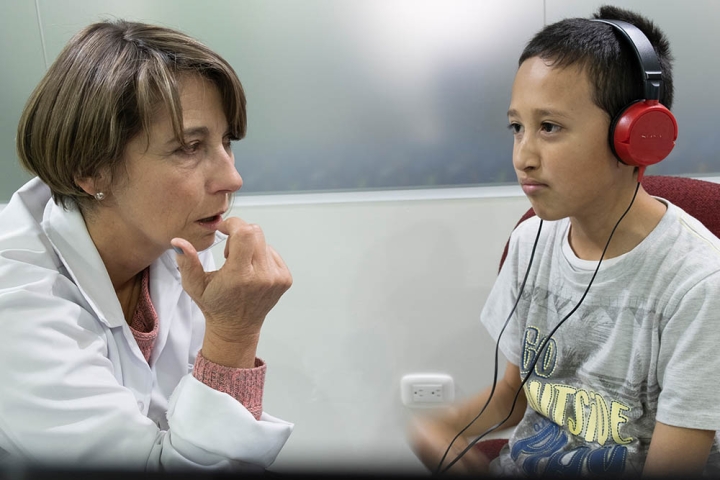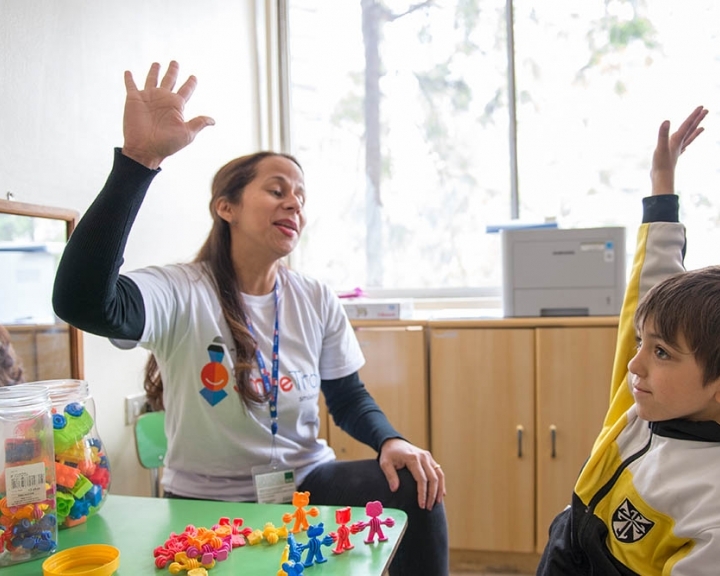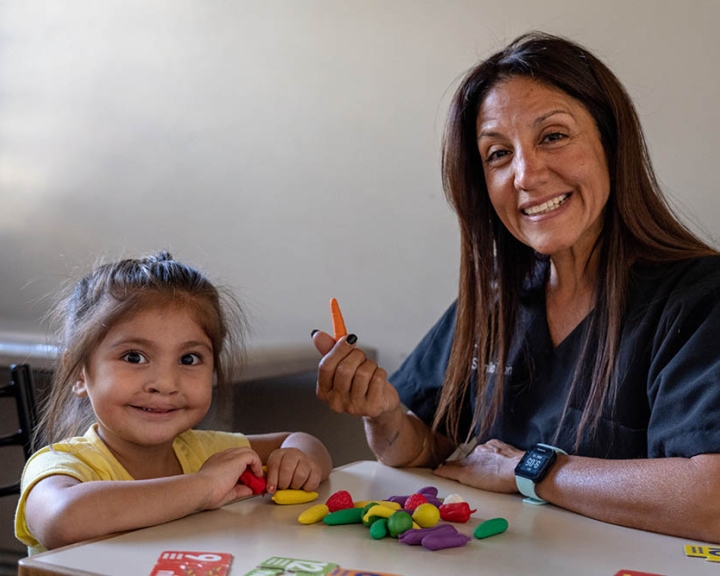Speech Services
Like all children, those with clefts begin learning about speech from their very first day of life.


Clefts and Speech
Like all children, those with clefts palate begin learning about speech from their very first day of life. Unlike most other children, however, their mouths and lips can make developing normal speech habits impossible. They may be difficult to understand because of one or more of the following communication problems:
- Language Delay
- Articulation Problems
- Hypernasality
- Nasal Air Emission
- Compensatory Articulation Errors
- Voice Problems
Early surgical repair usually provides a much-improved mechanism for speech. As children with cleft lip and/or palate grow, the development of speech and communication skills should be followed closely by a trained speech professional. Even after cleft palate repair, children may need specialized therapy in order to correct their speech. They may also need a second palate surgery to ensure that their palatal structures and muscles are in place for proper speech.

Speech Language Pathologist
A Speech-Language Pathologist, often referred to as a Speech Therapist, is a specially-trained healthcare professional that provides speech and language services in a medical setting, school setting, private clinic, or home-based intervention program. Typical goals of the therapy are to (1) establish correct articulatory placement; (2) maximize oral pressure for the pressure consonant sounds (plosives, fricatives, and affricates); and (3) maximize oral-pharyngeal articulatory function. The overall goal of therapy is to have the child achieve normal speech and communication for their age and developmental level.
